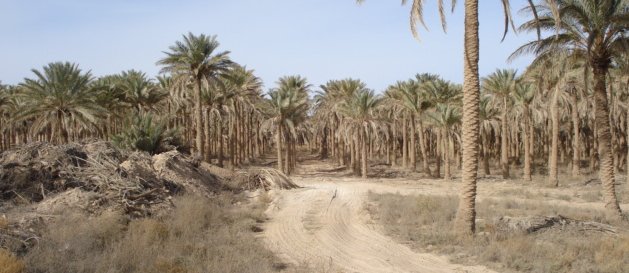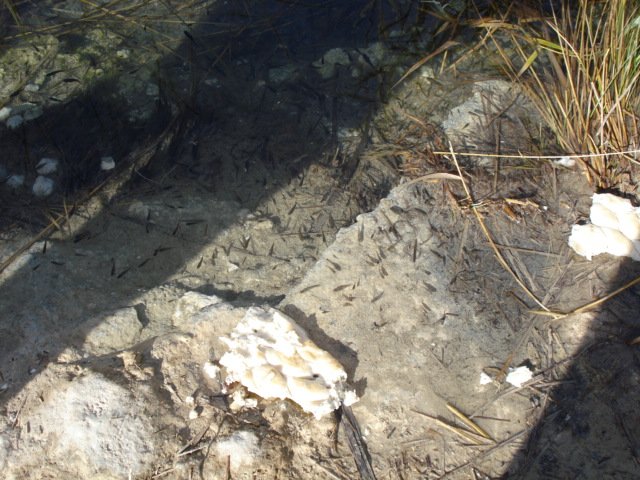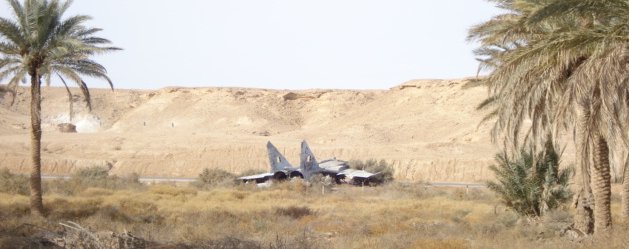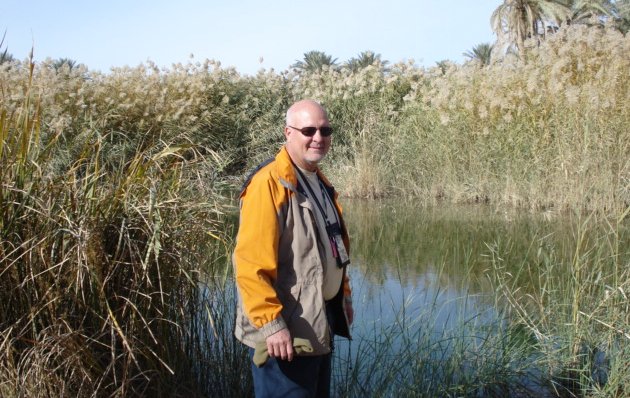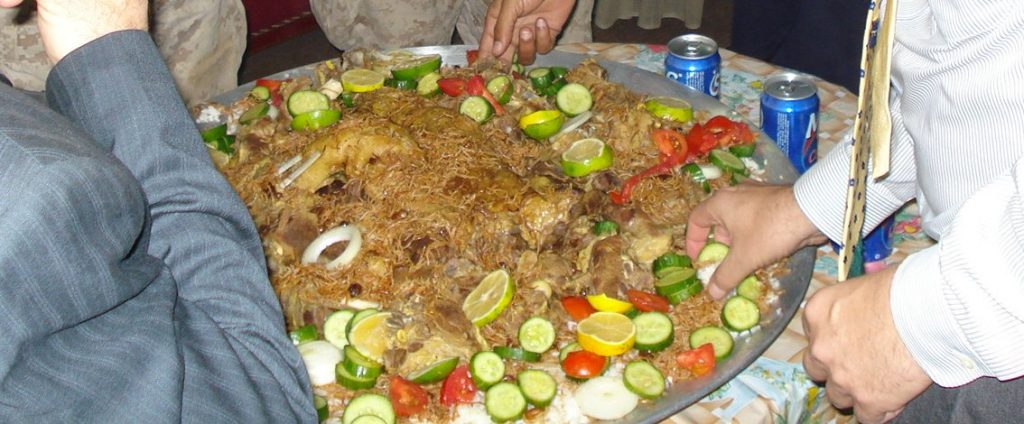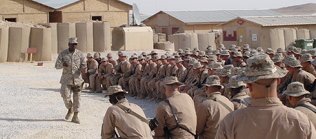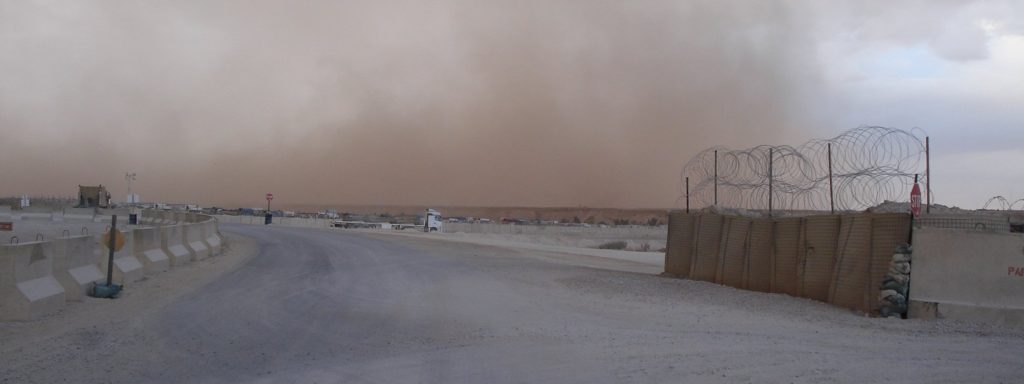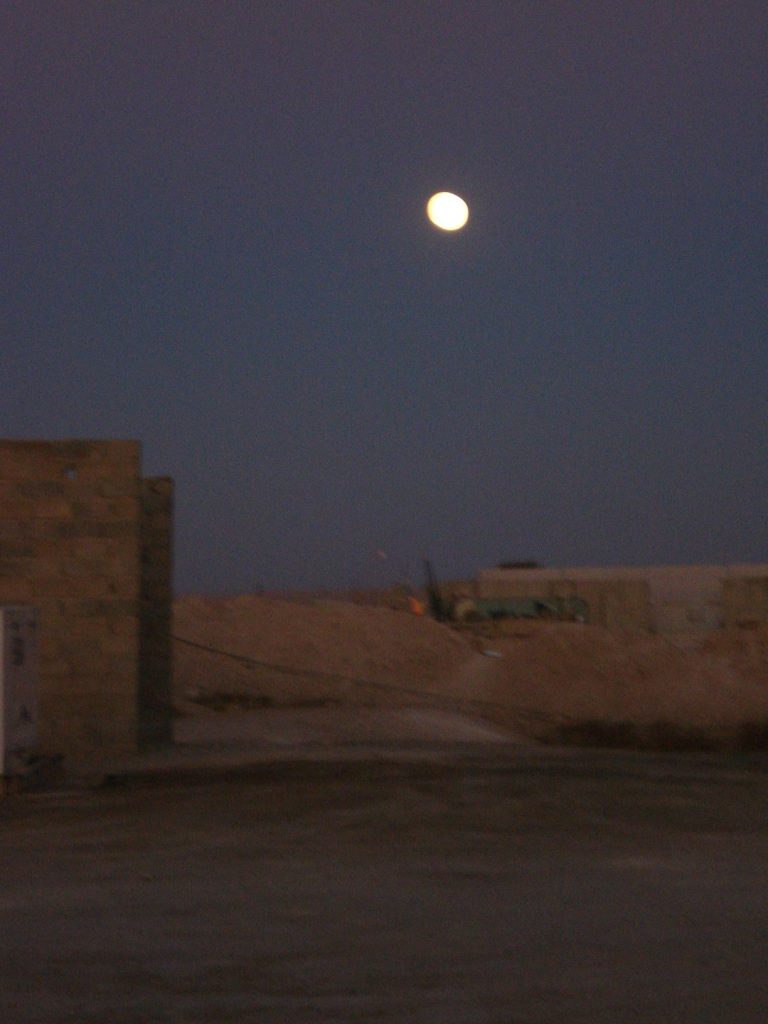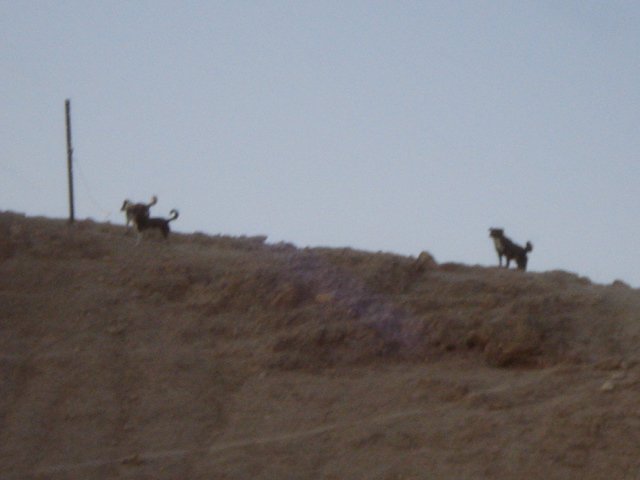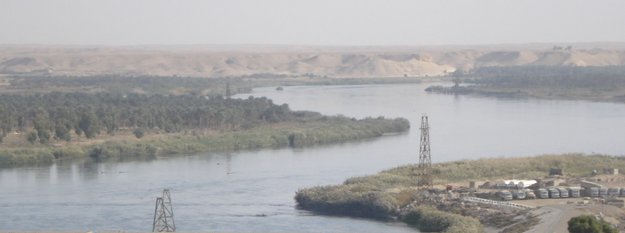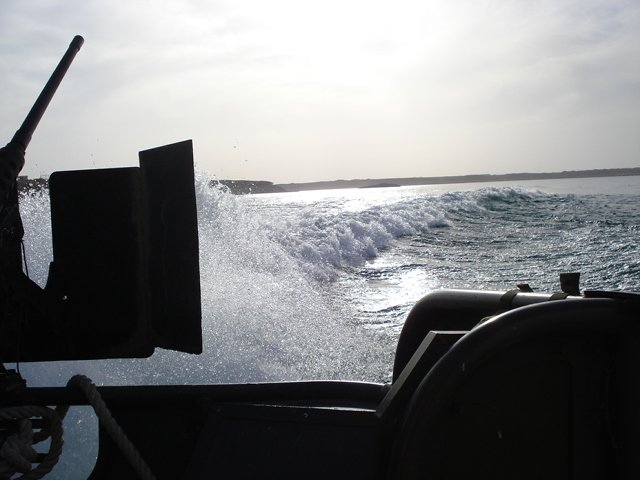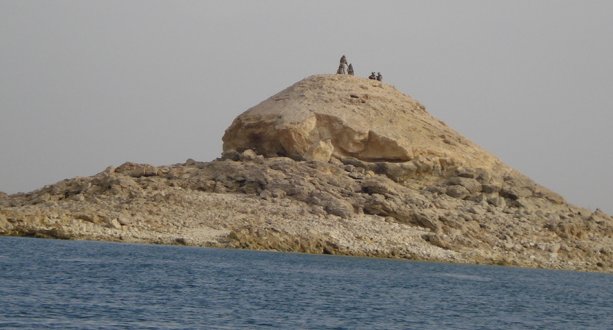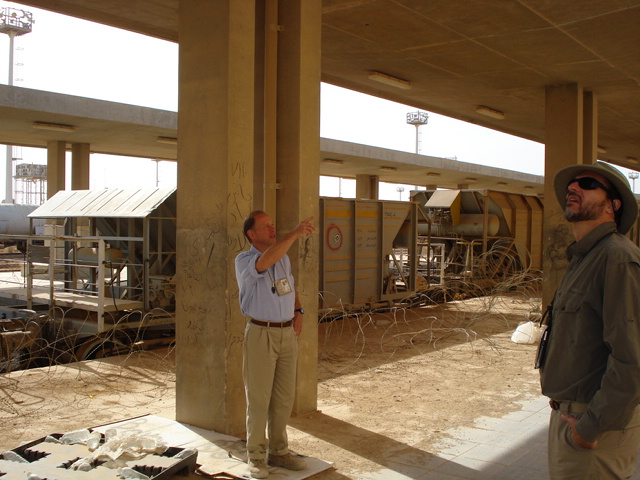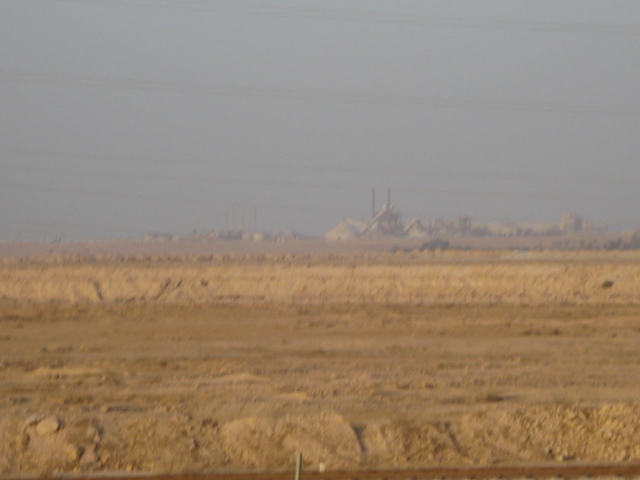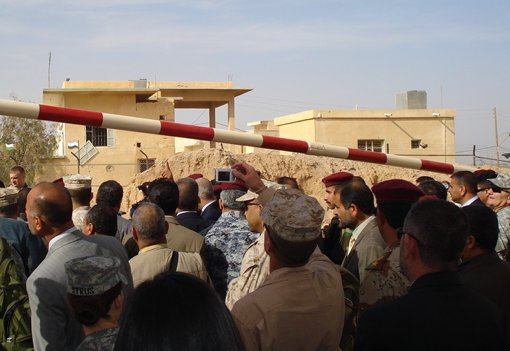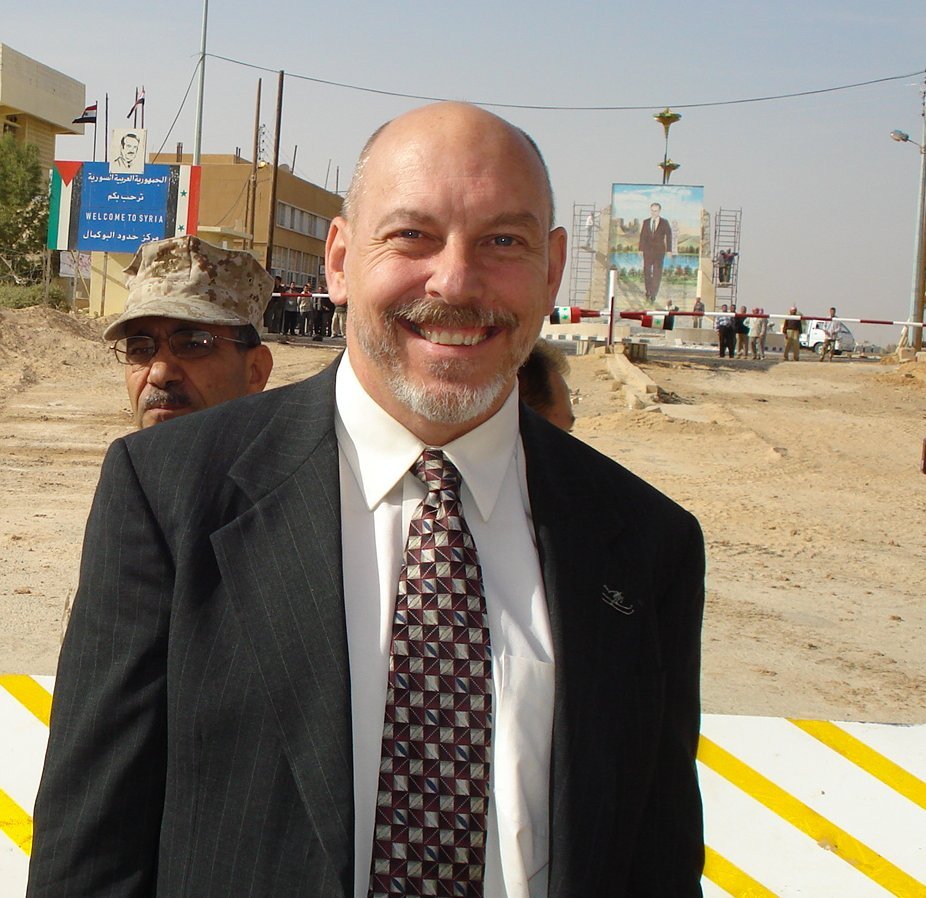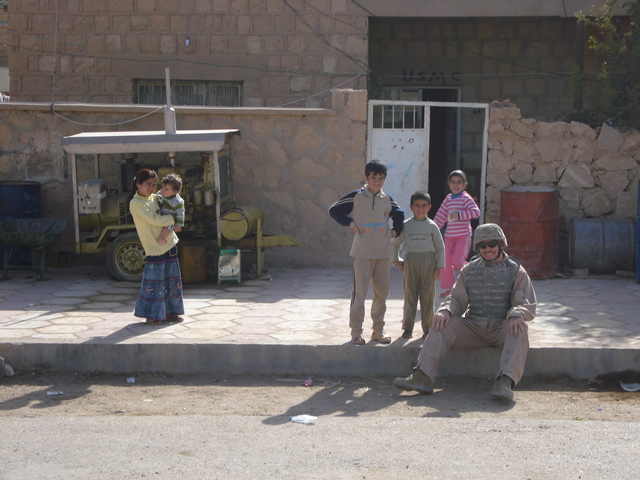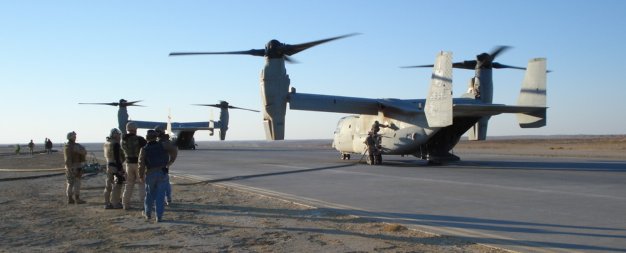
The picture above is my ride. They kick us out when they refuel. Good precaution.
It was supposed to be a short trip to Camp Fallujah. My penultimate big boss, John Negroponte, was coming by to learn a little more about progress in Anbar and PRTs, so everybody figured it was a good idea for me to come down.
The meeting was very good. I learned a lot listening to my colleagues and the generals, all of whom have more experience in Iraq than I do, explain how the situation had changed and what we were likely to see in the future. I made a modest contribution about our own ePRT plans. That was it.
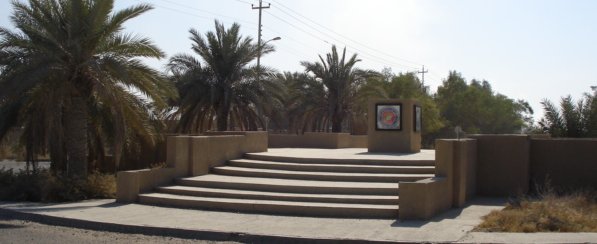
I planned to be back in Al Asad before chow. Unfortunately, as often happens, my flight time was changed leaving me in Fallujah for the whole day. This is not a bad thing. I have learned to bring books; my I-Pod and I can usually link on to the military email and keep up with some of my work.
Beyond that, I have the nicest room I have ever had in Iraq. I sometimes get treated better since my late promotion. I feel kind of bad about that, but not bad enough to turn down the special offers. There is a real bed, real chairs, a real desk and a little refrigerator with Coke. This evidently was some kind of conference center, so it features a nice conference room and luxurious guest quarters. You still have to share a bathroom, but it is indoors and not far from the rooms. The thing I find interesting about the bathroom is that there are ten showers but only two toilets. While I understand the necessity for cleanliness, most people take only one shower a day, while they tend to use other facilities more often. That is why I suspect the showers were dual purpose.
Nice as this place is, the delays do make planning difficult. Still as I was reading my book in preparation to stroll down to the chow hall, I could not feel very aggrieved.
Fallujah, as you may recall, was the scene of fierce fighting not very long ago. Just before I came to Iraq, I saw a History Channel program about it. It made me just a little uneasy about my decision to come to Iraq. There were actually two battles. We won both, and learned the lesson after the second that we needed to do more than win battles.
The city is actually more of an area than a true city and more of a Baghdad exurb than a part of Anbar. The American analogy might be Loudon County. During the Saddam time it was home to lots of Baathists and others who benefited from the regime. When Saddam fell, lots of people here lost their jobs and pensions. They were not all bad guys. There were various shades of grey and many of them had useful skills. Those were decisions made above my pay grade and before my time, but in hindsight it is likely that we went a little overboard in putting them out of work. How would it be for us if all the Federal employees in living Loudon County were laid off and/or lost their pensions? How might they react?
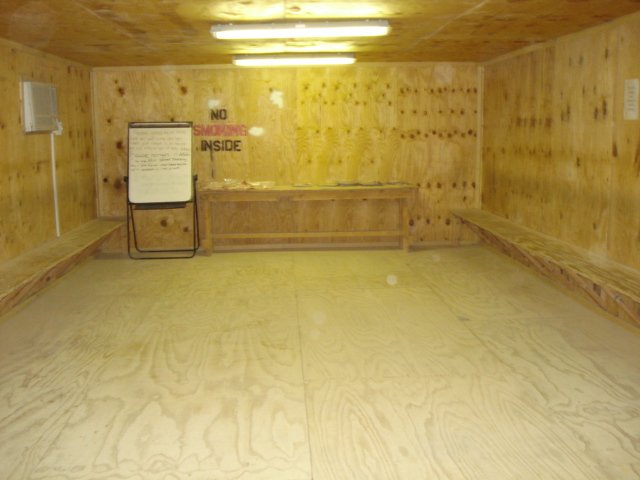
Of course, if we had it all to do over again we would make different mistakes. It is easy to be smart after you know the outcome. That is why you meet so many people who theoretically made big money with their past investments but seem to have no money in the real world.

